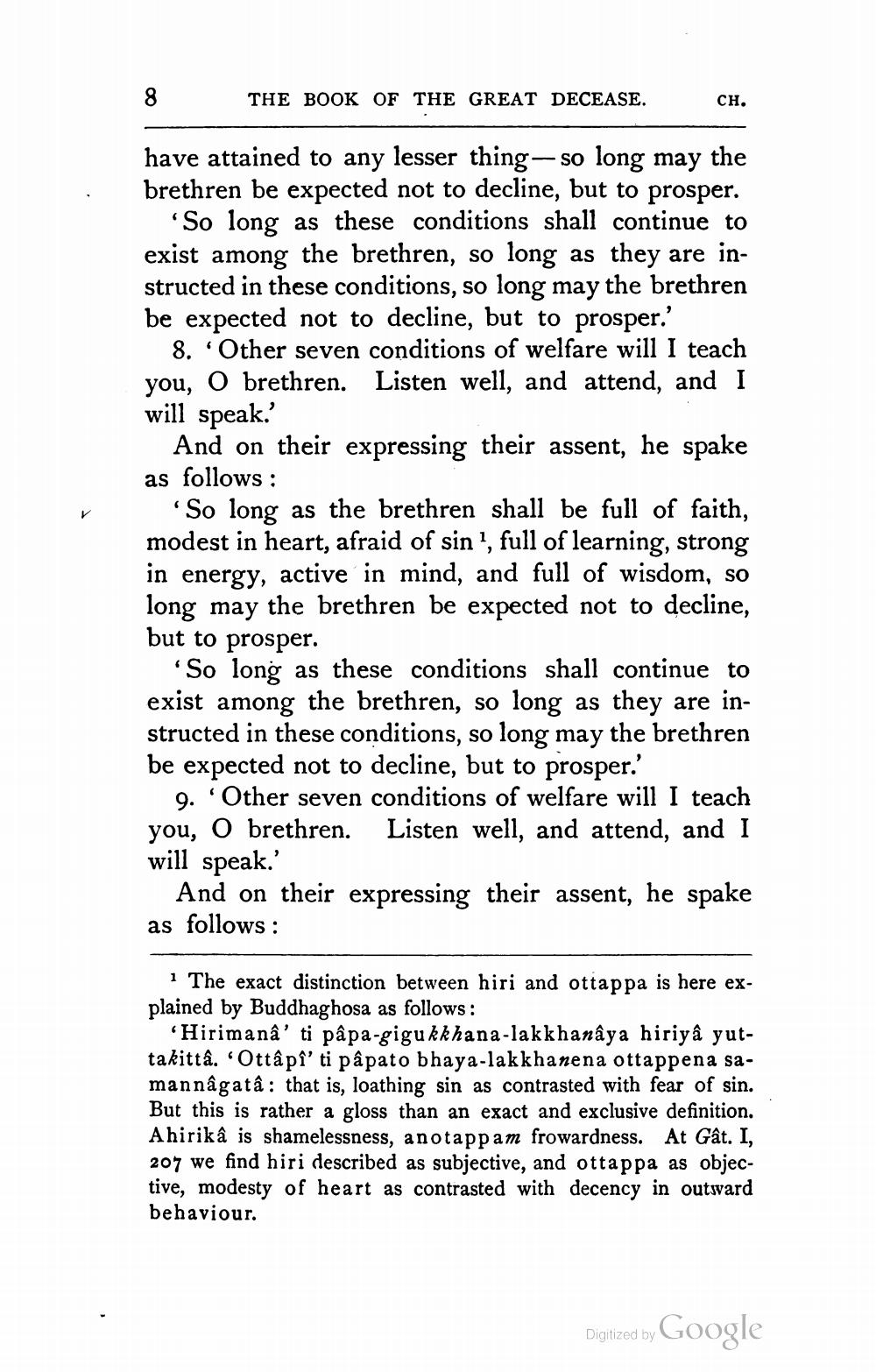________________
THE BOOK OF THE GREAT DECEASE.
CH,
have attained to any lesser thing—so long may the brethren be expected not to decline, but to prosper.
So long as these conditions shall continue to exist among the brethren, so long as they are instructed in these conditions, so long may the brethren be expected not to decline, but to prosper.'
8. Other seven conditions of welfare will I teach you, O brethren. Listen well, and attend, and I will speak.
And on their expressing their assent, he spake as follows:
So long as the brethren shall be full of faith, modest in heart, afraid of sin ?, full of learning, strong in energy, active in mind, and full of wisdom, so long may the brethren be expected not to decline, but to prosper.
'So long as these conditions shall continue to exist among the brethren, so long as they are instructed in these conditions, so long may the brethren be expected not to decline, but to prosper.'
9. Other seven conditions of welfare will I teach you, O brethren. Listen well, and attend, and I will speak.'
And on their expressing their assent, he spake as follows:
The exact distinction between hiri and ottappa is here explained by Buddhaghosa as follows:
Hirimanâ' ti pâpa-gigukkhana-lakkhanâya hiriyâ yuttakittâ. 'Ottâpî' ti pâpato bhaya-lakkhanena ottappena saman nâgatâ: that is, loathing sin as contrasted with fear of sin. But this is rather a gloss than an exact and exclusive definition. Ahirika is shamelessness, anotappam frowardness. At Gât. I, 207 we find hiri described as subjective, and ottappa as objective, modesty of heart as contrasted with decency in outsvard behaviour.
Digitized by Google




